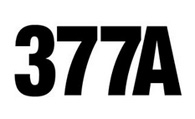The High Court in Singapore today dismissed a legal challenge filed by a gay couple Gary Lim and Kenneth Chee. The two men, who have been partners for 15 years, had sought to challenge the constitutionality of section 377A of the Penal Code that criminalises sex between men and provides a jail term of up to two years.

The couple's lawyers had argued that the law violates Article 12 of the constitution which promises equal protection under the law, and that the continued existence of the law “legitimises and perpetuates stigma and discrimination against lesbian, gay, transgender and bisexual people in society.”
Their case was heard on Feb 14 and was the first of two cases being heard by Justice Quentin Loh. He is yet to rule on a separate constitutional challenge of the same statute before the High Court filed by Tan Eng Hong, who is represented by human rights lawyer, M Ravi.
In a 92-page decision released today, Loh said that “s 377A essentially addresses a social and public morality concern which our Legislature identified in 1938 and subsequently affirmed in 2007.”
Addressing the frequently asked question which was also raised by the plaintiffs: why have s 377A if no one is to be prosecuted under it, Loh said: “If there’s no prosecution of s 377A offences, that is no ground to say that s 377A is unconstitutional.”
Commenting on the 2007 repeal of s 377 which prohibited oral and anal sex between an opposite-sex couple, he noted: “In 2007, Parliament recognised that social norms and values in Singapore had changed, and that the majority of Singaporeans no longer saw anything morally wrong or objectionable in consenting heterosexual couples aged 16 and above engaging in oral and anal sex in private.”
He quoted Antonin Scalia’s statement in his dissenting opinion in Lawrence v Texas: “One of the benefits of leaving regulation of this matter to the people rather than to the courts is that the people, unlike judges, need not carry things to their logical conclusion. The people may feel that their disapprobation of homosexual conduct is strong enough to disallow homosexual marriage, but not strong enough to criminalize private homosexual acts–and may legislate accordingly.”
Loh added: “(D)uring the October 2007 Parliamentary Debates, Parliament considered s 377 and s 377A carefully, and after debating the matter fully, endorsed the repeal of s 377 but chose to retain s 377 A. I can see no basis in this case to interfere given my reasons set out above. It is clear that Parliament saw a reasonable differentia upon which to distinguish between two classes: anal and oral sex in private between a consenting man and a consenting woman (both aged 16 and above) was acceptable, but the same conduct was repugnant and offensive when carried out between two men even if both men were consenting parties. There is therefore no reason to strike down the basis of the classification prescribed by s 377A – viz, male homosexuality – as arbitrary or discriminatory, or on the ground that it does not bear any rational relation to the purpose of the provision.”
He concluded: “In my judgment, the object of s 377A is clear. It criminalises male homosexual conduct that is not acceptable in our society. Its retention was endorsed by Parliament in 2007… I also find that the purpose of s 377A is not a purpose which is so patently wrong as to render it an illegitimate purpose upon which to base a classification prescribed by the law."
In a statement released following the judgment, Lim and Chee said they “are disappointed that the High Court ruled against us and upheld s377A.”
“Having been together for 15 years, it is disheartening that we are criminals in the eyes of the law because of a segment of society that will not live and let live, but insist on pushing their version of religion and morality on us.
“We believe that most Singaporeans do not believe that gay people should be jailed for something they can’t change, and we believe that an equal and fair Singapore is worth striving for. We have received many supportive messages since this began, and we ask that people continue to come together as we work towards a Singapore that everyone can truly call home,” they added.
Lim and Chee are represented by veteran lawyer and former Law Society president Peter Low, Choo Zheng Xi and Indulekshmi Rajeswari. According to a spokesperson, the legal team will review the High Court decision before deciding whether or not to appeal.
